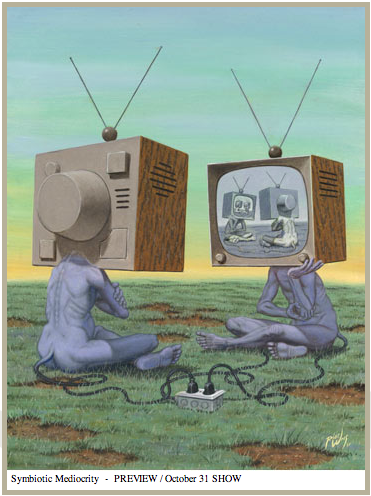As I take my notes from Turkle and Rosen from Digital Divide, with our interactions with social media, we are negotiating our own selves and beings. Thus, creating a fragmented and multiplicitous culture. Distinctions are being made unclear as it seems we are constructing a magical realist society. The notion of the computer and information communication technologies are blurring our boundaries between what really exists as real, and the fake. I am skeptical to dare say that this is a postmodern view and reality. Why? Because if all that is happening right now is postmodern, then what do we make of this ever so fast and evolving nature of the internet and information communication technology? Is there such a thing as post–postmodern?
Anyway, moving on, Turkle presents the idea of the identity as being flexible, acting in many possibilities of multiplicity. This allows for the ability to construct and reconstruct with social media as an outlet for self-discovery leading to self-transformation. Yet, Turkle points out that the pieces are fragmentary, blurred.
Turkle also draws parallels to the online persona(s) to Multiple Personality Disorder and the notion of “alters“, like the idea that we perform certain identities under certain circumstances in Goffman’s idea of performance management. For example, I often catch myself planning what I might be wearing if I’m going to see certain professors, like I’m trying to emulate myself based off of their values, thoughts, and ideologies, thus assuming a different identity as the flexible self. Do I dress more conservatively? Modestly? Laid-back? I enjoy the art of the fashion industry, so if I’m dressed fashion-forward in front of a professor, would they take me seriously? This can be compared to our heightened sense of multi-tasking, and our abilities of being able to switch our identities like we switch back and forth between open pages, tabs, and documents on the computer. But it’s also about constructing to conform, and re-constructing to be our own, and negotiating our portrayals based on others views and reactions towards us.
As we are constantly being pushed and pulled while in the practice of switching between personalities, Rosen declares that “We must consider what type of behaviour online social networking encourages” (p. 173). Rosen posits that we are in a state of collecting and performing. We craft our online identities like an interactive portrait, and like Turkle, we negotiate parts of ourselves through Foucault’s and Goffman’s idea of surveillance of the collective, but also through Eric McLuhan’s idea of actively participating in our own theatrical stage for our own self.
But as we construct our identity, it is brought to question of whether our identities and existence are undermined as we are identified next to fictional characters, sports mascots etc., when they have their own pages and identity and given the same platform of identity and importance as real people. This certainly blurs the boundary between fake and the real.
Relating back to Foucault and Goffman, is the juxtaposition of the online vs. offline world and how we are regulated, watched, learn norms, and act. This is primarily done offline, but the online world is challenging how we learn these things and is changing the way we interact and present ourselves.
More importantly, “We should also take note of the trend toward giving up face-to-face for virtual contact” (p. 187). Rosen provides the example of online banking example over going to a teller or ATM. We, as in the users of information communication technology seem to place less emphasis and value on human interaction and authentic/genuine connection as we
“…avoid the vulnerability and uncertainty that true friendship entails. Real intimacy requires risk–the risk of disapproval, of heartache, of being thought a fool. Social networking websites may make relationships more reliable, but whether those relationships can be humanly satisfying remains to be seen” (188).
As we craft, re-touch, re-work, re-build our identities, are we getting lost and losing sight of who we really are? Or are we evolving our own selves to a higher level? If we are living in Plato’s Cave as Eric McLuhan pointed out, are we disillusioned? If according to Rosen, we are valuing less in the real and authentic, then what’s the point of our performances? Is it for naught? Who really cares? And what of the real-life relationships of the face-to-face kind? Yes the vulnerable aspect of meaningful relationships is scary, but how does one connect by not opening up and (for lack of a better term)…connecting?
